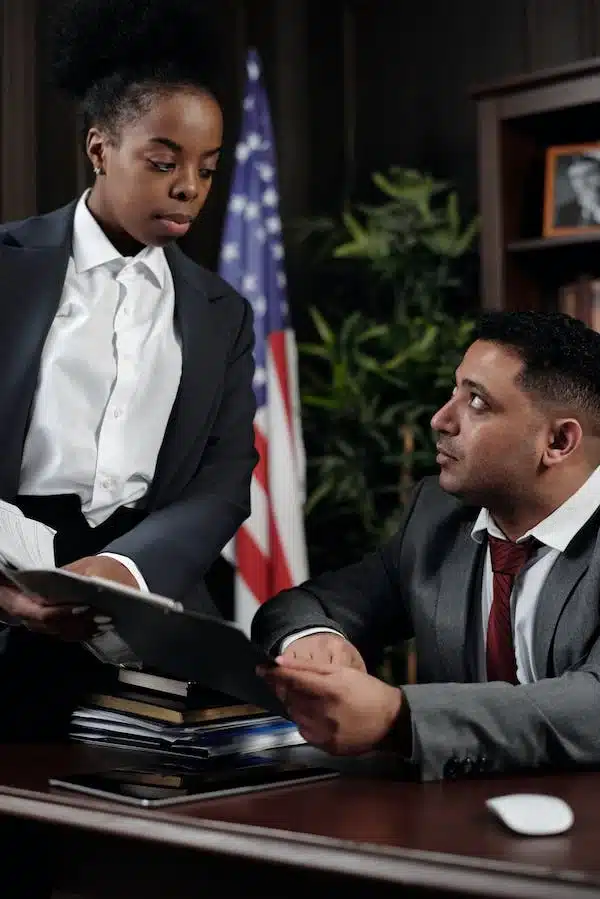The Vital Role of Youth in Governance Process in States

What is the Vital Role of Youth in Governance Process in States?
Role of youth in governance: Involving young people in the government process is essential to determining a country’s future and present. Most commonly, “youth” refers to those who are in the range of 15 to 24 years old. They comprise a population group that has a great deal of potential to advance the growth and development of the states in which they live. This paper examines the historical background of youth involvement in governance, profiles notable individuals who have made noteworthy contributions, evaluates the effects of youth involvement, talks about different viewpoints on the subject, and speculates about possible future developments.
Historical Background and Important People
The involvement and Role of youth in governance has its origins in a number of historical movements and is not a relatively new phenomena. The worldwide student demonstrations that occurred in the 1960s were one such crucial occasion. The ability of young people to advocate for significant social and political reforms was highlighted by these protests. Leaders that inspired young people to oppose unjust institutions were individuals like Nelson Mandela, the leader against apartheid, and American civil rights campaigner Martin Luther King Jr.
Malala Yousafzai, the Pakistani Nobel laureate who battled for girls’ education against discrimination, is another significant figure in youth activism. Millions of young people were inspired by her efforts to take up their rights and get involved in politics. These historical leaders have established important precedents, proving the need of young engagement in bringing about constructive change.
Effects of Youth Engagement
The engagement of young people and role of youth in governance in the process of governance has several benefits for nations. First of all, youth bring new insights and creative ideas to the table. They frequently question the current quo, which may result in more inclusive laws and procedures for making decisions. Second, youth involvement can increase civic engagement and understanding, fostering the development of knowledgeable and politically engaged citizens. Participation in governance by young people increases the likelihood that they will remain involved in it throughout their lives, which is good for democratic systems.
Youth involvement in politics may also strengthen social cohesiveness and give underprivileged groups more influence. Governments are better equipped to meet the unique needs and concerns of various communities when they involve young people from varied backgrounds. By giving underprivileged kids a forum to speak out for their rights and build a more just society, this involvement also advances social justice.
Significant People and Opinions
Youth engagement in government has been greatly aided by a number of powerful persons. One such person is the former UN Secretary-General Kofi Annan, who founded the UN Youth Envoy Office in 1998 and stressed the value of youth involvement. The goal of this project is to guarantee young people’s active involvement in international decision-making processes and to elevate their voices.
Furthermore, institutions such as the United Nations Development Programme and the World Bank have acknowledged the critical role that young play in government. They have backed programs like the Youth Innovation Fund, which gives money and resources to projects driven by young people. These initiatives demonstrate the growing agreement among international organizations and governments that youth involvement is essential to sustainable development.
On the other hand, opinions on young people’s involvement in government are not always favorable. Critics contend that inexperience among young people might result in unrealistic policy recommendations and inadequate comprehension of intricate matters. They think that before getting involved in the governance process, young people should acquire more experience and education. Incorporating mentoring programs and capacity-building efforts is crucial to addressing these problems and ensuring that young people have the skills and knowledge needed to effectively participate to government.
Both good and bad aspects, as well as upcoming developments
Recognizing possible disadvantages must be matched with the benefits of young involvement in government. Although young people offer new insights, elder generations who are hesitant to alter long-standing structures may oppose them. To establish trust and develop successful policies, it is essential to bridge generational divides and promote intergenerational communication.
The proactive measures adopted by governments, international organizations, and communities will determine future developments regarding the critical role that adolescents play in governance. The participation of youth in governance processes may be strengthened by putting into practice policies that offer worthwhile possibilities for young engagement, including creating youth councils or guaranteeing youth representation in decision-making bodies.
Furthermore, social media and technology are becoming more and more important in facilitating young involvement. Young people have access to online forums where they may express their views and take part in policy debates. Governments and politicians must adapt to these new kinds of involvement and provide inclusive venues for discourse in the digital arena.
Youth in Politics: Benefits and Drawbacks
Historically, older, more seasoned people with vast networks and understanding in the sector have dominated politics. Nonetheless, there has been a growing movement throughout time to encourage younger people to get involved in politics. There are benefits and drawbacks to young participation in political institutions, and it is important to comprehend the background history and influential personalities that have influenced this development.
Young people have historically participated in a wide range of global revolutions and political movements. The student demonstrations of the 1960s and 1970s, including the Berkeley protests in the United States and the May 1968 protests in France, are two instances of significant youth-led movements. These movements called for social justice, civil rights, and an end to the Vietnam War in an effort to subvert existing governmental institutions and policies.
Mario Savio, a prominent participant in the 1960s youth-driven movements, headed the University of California, Berkeley Free Speech Movement. Savio promoted increased student participation in academic institutions’ and society’s overall decision-making processes. Numerous young people were motivated to become politically active by his impassioned speeches and tireless organizational efforts, which also fueled the larger youth movements of the time.
Malala Yousafzai is another significant figure in the political engagement of young people. Malala, a Nobel laureate and activist from Pakistan, rose to fame for her support of girls’ education. She has endured several attempts on her life as a result of her activism, yet she still motivates young people everywhere to fight for their rights and take an active part in political discourse and decision-making.
Youth’s Benefits in Politics
There are several benefits to young people participating in politics. First of all, young people frequently have novel viewpoints and creative ideas that may upend the existing quo and revitalize political conversation. Their exposure to a world that is changing quickly and their unique experiences allow them to provide innovative answers to challenging issues.
Young people in politics may also reflect their peers’ interests and close the generational divide. They are more cognizant of the problems that their generation is facing, including the effects of climate change, growing student loan debt, and a lack of employment options. Young politicians may help create legislation that address the challenges that affect their age group by supporting these causes.
Young people being involved in politics also encourages civic engagement and political engagement. Young people are more likely to become interested in and involved in political processes when they witness their peers actively participating and having a voice in the political sphere. This may result in a more inclusive and representative democracy as well as higher voter turnout.
Youth’s Drawbacks in Politics
Although there are unquestionably benefits to young people entering politics, there may also be drawbacks that should be taken into account. The relative inexperience and incompetence of young politicians is a significant cause for concern. Politics is a complicated area that calls for a thorough knowledge of negotiation, policy-making, and bureaucracy. In the absence of appropriate advice and mentorship, emerging politicians may have difficulties in successfully executing their concepts and plans.
The idea that young people lack the maturity and discernment needed to make critical judgments is another drawback. Some contend that youth may be readily influenced by fads or lack the long-term perspective required to tackle challenging issues. Their legitimacy and efficacy as political representatives may be damaged by this impression.
Young people being involved in politics may also lead to ageism, as older generations ignore their contributions and views only because they are older. For young politicians, breaking through preconceptions and biases may be a big task since they always want to prove themselves and win the respect of their more experienced colleagues.
Important People and Upcoming Changes
Youth in politics has benefited from the rise of many powerful persons, as well as its drawbacks. Young people’s participation in politics, regardless of party affiliation, has been greatly aided by political organizations like the Young Democrats and Young Conservatives. These groups offer forums for young people may participate in policy discussions, hone their leadership abilities, and add to the platforms of their political parties.
Additionally, the emergence of social media platforms has made it much easier for young people to get involved in politics. Young politicians may engage with their voters, discuss their views, and rally support by using social media sites like YouTube, Instagram, and Twitter. Digital activism and social media campaigns have shown to be successful strategies for influencing political narratives and attracting younger voters.
Looking ahead, young people interested in politics have both chances and difficulties. Role of youth in governance and political parties are realizing more and more how important it is to include young people at the decision-making tables. But, measures must be taken to guarantee that their involvement extends beyond symbolic gestures and that youth are given real authority to influence laws that directly impact them.
There are a lot of possible future developments pertaining to young people in politics. The benefits of youth in politics may be enhanced with improved mentorship programs, thorough political education, and venues for young people to grow as professionals. Intergenerational cooperation is also necessary, in which seasoned lawmakers collaborate closely with emerging leaders to capitalize on their enthusiasm and new views, which will eventually result in more inclusive and successful governance.
In conclusion role of youth in governance has benefits and drawbacks to young participation in politics that should be carefully evaluated. Young people’s inventiveness and new viewpoints may energize political debates and legislation. It’s also important to recognize their relative inexperience as well as the difficulties they have building authority and influence. Societies may gain from young people’s ideas, energy, and enthusiasm for building a better future for all by tackling these issues and fostering an atmosphere that encourages youth political engagement.

Wrapping up on role of youth in governance
It is indisputable that youngsters play a crucial part in the government process. Role of youth in governance and historical occurrences, significant personalities, and the results of youth involvement have brought attention to how important it is in determining a country’s course. Even if there are obstacles and maybe bad elements, young people‘s contributions to governance greatly exceed the disadvantages. Embracing youth perspectives, ideas, and energy will promote more sustainable and inclusive communities. State investments in youth empowerment and engagement may guarantee a better future for all.

14 thoughts on “What is the Vital Role of Youth in Governance Process in States?”